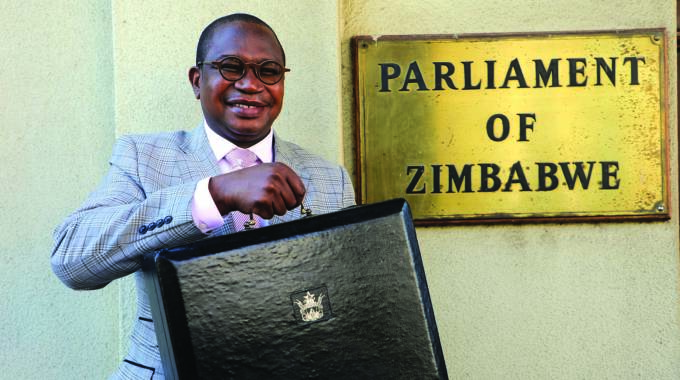
The Sunday Mail

Persistance Gwanyanya
While it is true that a national budget is not a silver bullet that can address challenges of a structural nature such as the ones affecting Zimbabwe, it is equally true that citizens attach significance to it.
In the United Kingdom, a botched mini-budget by then Chancellor Kwasi Kwarteng recently cost Prime Minister Liz Truss her job.
As such, it is important to anticipate citizens’ expectations from the budget and also manage them.
Given the current situation, the 2023 Budget is expected to balance growth and stability.
While we achieved remarkable growth of 7,8 percent in 2021 and are projected to realise 4,6 percent growth this year, we have sacrificed stability, with inflation having peaked at 285 percent in August.
Growth was mainly driven by, among others, construction, especially infrastructure development, which inherently requires huge sums of capital and foreign currency.
Due to limited access to international financial markets for long-term capital, infrastructure was mainly funded from the Budget, which is not an ideal funding option.
Our unique circumstances mean we had to sacrifice but, as expected, that was not without consequences.
Instability was the consequence.
This notwithstanding, we managed to record significant progress in infrastructure development by building roads, dams and airports using our own currency and internally generated resources.
What is comforting is that these developments are permanent and instability there from can be addressed.
We can address this by focusing on stability.
Treasury recently instituted value-for-money audits to manage the potentially destabilising impact of Government procurement processes.
This is expected to minimise the impact of Zimbabwe-dollar funding for projects on currency volatility and inflation.
This will be achieved by always ensuring that Government pays for goods and services at the “right” price.
The right price is the one that does not afford the beneficiary the flexibility to participate in the alternative market.
The Zimbabwe dollar has notably been stable for the greater part of the second half of the year, which attests to the potency and effectiveness of current policies.
We now expect the Budget to come up with measures that entrench stability.
Clearly, these measures should be centred around the judicious management of financial resources.
This will make the work of the Reserve Bank of Zimbabwe (RBZ) to maintain currency stability easier.
We need to continue living within our means and remain growth-focused rather than consumption-focused.
As we implement the ongoing reforms, we should not forget those on the lower rungs of the economic ladder.
As such, there is need to give more focus on the provision of public services such as healthcare and education, as well as social protection.
Our healthcare system still needs more support.
We need to sort out the basics while creating an environment to attract long-term capital.
There is also need to continue improving the welfare of civil servants.
The economy are the people and the people are the economy.
While Treasury is commended for having done much with limited resources, it is advisable for Government to continue improving the welfare of its employees.
The private sector is similarly advised.
There has also been a lot of feedback on the Intermediated Money Transfer Tax (IMTT) on domestic forex transactions.
The market generally holds the view that at 4 percent, the tax is too high and may be detrimental to the flow of foreign currency to the formal system.
While the idea of taxing domestic foreign currency transactions higher than local currency transactions is well-understood — to discourage forex usage domestically, thereby reduce risk of redollarisation — the market is of the view that the IMTT tax may need to be revised to slightly above the Zimbabwe-dollar IMTT tax of 2 percent.
Perhaps this could be the right time.
Most importantly, Treasury is also advised to pivot more towards increased Zimbabwe dollar preference as a way of increasing demand for the local unit, which is key in supporting its stability.
We now need to focus on making the current stability permanent and durable.
By pivoting more towards Zimbabwe-dollar taxes and duties, Treasury will send a clear message that the local currency is Government’s preferred currency.
We need to promote the use of the Zimbabwe dollar.
This will signal stability in the economy and create a new culture, where the Zimbabwe dollar is a preferred currency for transactions.
Driving economic growth is also paramount.
Being an agriculture-dependent economy and faced with high input costs, we definitely need to support farmers.
Self-funded farmers need to be capacitated, while the risk of huge dependence on Government support programmes such as the National Enhanced Agriculture Productivity Scheme needs to be reduced.
Treasury can also be better served by continuing the incentive system to support various sectors of the economy such as tourism, mining and infrastructure development.
Overall, Treasury should concentrate more on sound policies that attract investment as opposed to the resource allocation function.
Persistence Gwanyanya is a member of the RBZ Monetary Policy Committee and founder, futurist and vision consultant of Bullion Group. For feedback, WhatsApp +263773030691



